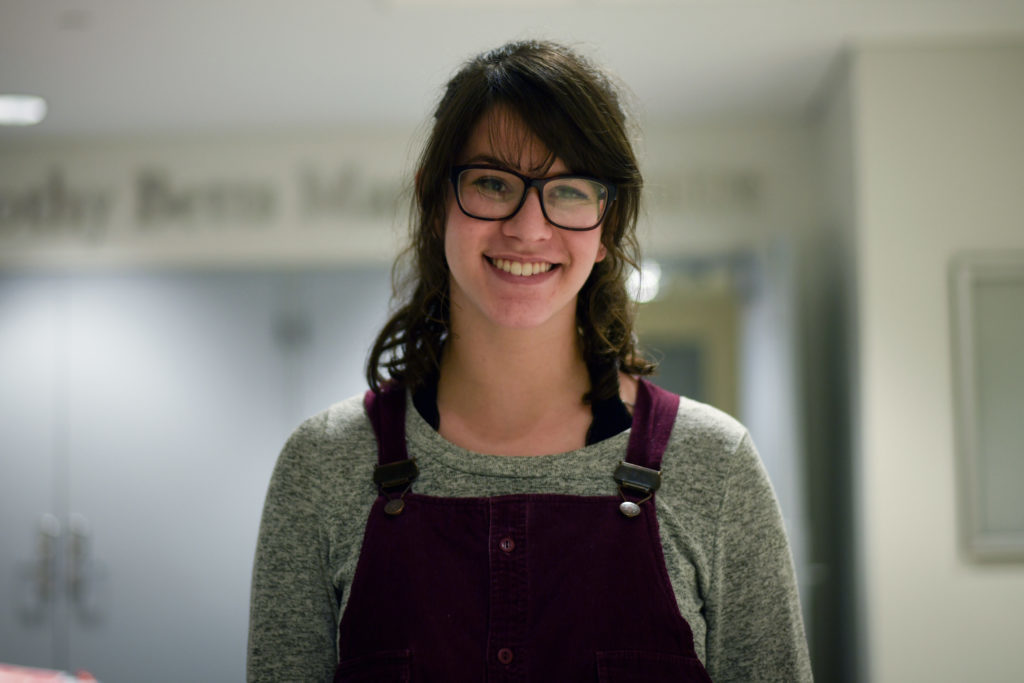Two members of the Student Association are looking to better connect GW’s nearly 40 visual and performing arts student groups.
The SA’s top two arts officials created the GW Arts Committee, a body aiming to represent GW’s 36 music and art organizations, in December. The students said the new committee will allow members of the organizations – about 20 of which have joined so far – to improve communication within the arts community and help promote events and activities across campus.
Hannah Friedman, the SA’s director of the arts, said she decided to form the committee over the summer as her SA project. Every director under the SA president must come up with one main initiative to work on over the academic year.
After witnessing a lack of communication between visual and performing arts groups on campus, Friedman said she wanted to create a larger community for students interested in the arts to interact. She said the committee could be used to represent the bigger interests of the arts community to administrators or the SA.
“We’ve really been craving this representation to advocate on our behalf for a while, so I was really excited to take all of the problems I had been experiencing and hearing about as being a part of the community and bringing them to the administration and try to facilitate solutions,” she said.
She said the new group, which met for the first time last month, will allow each organization to promote events and interests in one forum, reducing the pressure on group leaders to promote performances and events on their own.
Friedman sent an email to all arts organizations in December to advertise the new group, and the committee held its first two meetings in December and January. While the organization isn’t officially recognized by the Center for Student Engagement, the committee – consisting of one executive board member from each arts group – will meet on a monthly basis to discuss issues and keep each other informed about events the clubs are hosting, she said.
The committee itself won’t receive SA funding, but its member groups will still be able to apply.
The group currently does not have hierarchical positions like president or secretary because Friedman wanted a “pretty equal body” where members “don’t need to answer to any higher power because they are already the leaders of their arts orgs,” she said.
Samantha Carpenter, the SA’s assistant director of the arts, who also helped create the group, said the committee is a way for the SA to promote and support arts organizations on campus.
“Our main goals are to improve collaboration and communication, but also to help these arts organizations be known to everyone in the art community and the GW community,” she said.
Carpenter said the committee will function similarly to the Club Sports Council, a representative body of all the club sports organizations on campus.
Scolaighe Goebert, the president of the Club Sports Council, which represents 35 club sports teams on campus, said groups that represent a range of student organizations amplify the voices of their member groups and give those organizations a link to administrators.
“It gives the student body legitimacy and it allows all of us to speak with one unified voice, rather than an administrator hearing the cacophony of however many sports clubs we have,” Goebert said.
Student leaders serving as representatives on the committee said they hope unifying as one representative body will help to facilitate conversation and encourage greater attendance at each other’s events.
Victoria Lewis, the president of GW Bhangra, a Punjabi dance group, said her organization often struggles to find practice spaces on campus that have floors safe for dancing – an issue she hopes can be addressed in the new committee.
“There are only a couple of spaces on campus that are good to dance on, so Bhangra uses fourth floor Marvin spaces, but after so long that’s hard on knees and we have to use windows as mirrors,” she said.
Benjamin Hess, the president of Sons of Pitch, an all-male acapella group, said joining the organizations under one committee will make a stronger impact when addressing the administrators about problems or proposed changes, like needing more financial support.
Music groups were outraged when the music department’s budget was slashed in 2015. The SA later gave extra funding to those groups to compensate for the cuts.
“It’s important to show the administration that this is a huge part of campus and our student life at GW, and just to come forward as a united front and talk about the stuff we’d like to see it makes a bigger impact and could be recognized by the higher-ups,” Hess said.





